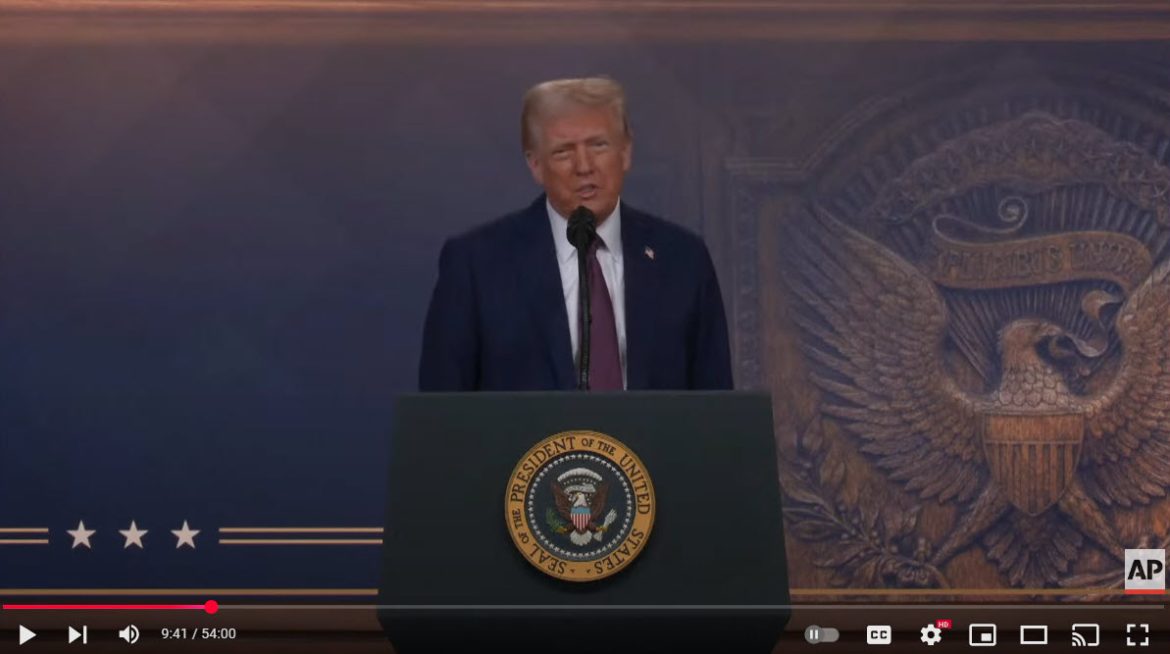President Donald Trump delivers a virtual address to the World Economic Forum in Davos, Switzerland, marking his first major speech to global economic leaders since his inauguration. In his remarks, he emphasizes the urgency of addressing the current inflation crisis, describing it as the worst in modern history. He attributes the rising prices to the policies of former President Joe Biden’s administration and outlines his plans to mitigate inflation through a combination of tariffs, deregulation, and tax cuts.
During his speech, President Trump announces his intention to demand lower global oil prices, interest rates, and taxes. He warns that companies manufacturing products abroad will face tariffs, urging businesses to relocate production to the United States. This stance is part of his broader strategy to bolster domestic manufacturing and reduce reliance on foreign imports.
The President also criticizes the European Union for imposing substantial taxes on American technology companies, threatening to implement tariffs on the EU if these measures are not retracted. He specifically references the EU’s €15 billion back tax demand from Apple as an example of unfair taxation practices. Additionally, President Trump expresses disapproval of the global minimum corporate tax rate of 15% agreed upon by several countries, including the UK and the EU, advocating for more competitive tax policies to stimulate economic growth.
Addressing international security concerns, President Trump calls for an immediate end to the war in Ukraine. He urges major oil producers, particularly Saudi Arabia, to reduce oil prices as a means to facilitate peace efforts. The President praises Saudi Arabia for its commitment to invest $600 billion in the U.S. economy and humorously requests an increase in this investment to $1 trillion, highlighting the strong economic ties between the two nations.
The President’s remarks have immediate effects on global markets. Following his call for lower oil prices, Brent crude prices experience a decline. His comments on interest rates and taxation also influence currency markets, leading to fluctuations in the euro and U.S. dollar. These market reactions underscore the significant impact of U.S. economic policies on the global financial landscape.
President Trump’s address is met with a mix of optimism and concern among the Davos attendees. While some business leaders express enthusiasm about potential collaborations under the new administration, others voice apprehension regarding the implications of the proposed tariffs and the potential for increased global economic tensions. The President’s emphasis on deregulation, tax cuts, and energy production is seen as a continuation of his America First agenda, aiming to prioritize U.S. economic interests on the world stage.



